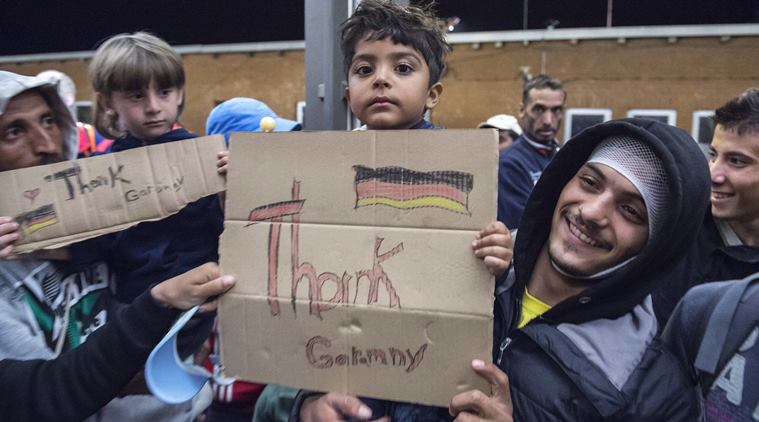clear
What would happen if Germany didn’t accept migrants in 2015?
clear

source:
No picture
This is very interesting question. Howerer, the anwers is very problematic. Maybe we should start with deciding to what extent German 'invitation' to welcome the immigrants worked as a trigger for the whole exodus?
clear
To know this you would also need to know statistically how many migrants they did take and the exact circumstamces of their coming to Germany.
It's not impossible that the collective will of Europe could have resulted in them being deported or for diplomacy with the migrants to result in additional processes to ensure that the number of people making such a move was reduced significantly.
It doesn't for example solve the problems that started the migrant movements and you would have to question the effectivness of aid spend..Great Britain for example has ringfenced a significant proportion of GDP to send to 'third world' states...phraseology such as this too has been called into question when recent statistics revealed that life expectancy is greater in Vietnem than in parts of Glasgow...
 0
0
clear
The decision of the German government to open borders in September 2015 and register all refugees arriving to Germany came as a consequence of deterioration in the humanitarian situation when thousands of refugees found themselves locked in Hungary facing hostile attitude of the government, as an act of European solidarity of people living in Germany with refugees and migrants. Due to the practical inability of the German state to provide a proper care for the thousands of refugees arriving to Germany via the Balkan route by foot, it could not continue such policy for a long time. However this historical decision has divided public opinion in Germany: while many people were organizing themselves into voluntary groups aiming at providing support for newly arriving refugees, there has been also a growing support for the AfD party that harshly critisized the ruling party coalition for lifting the border controls and thus increasing the risks of the terrorist threat in Germany. In addition, difference in opinions between refugee-welcoming Germany and resfugee-sceptical Hungary has been fully revealed. Therefore if Germany did not help thousands of refugees in 2015, there would be a risk of humanitarian ctastrophe for the refugees staying in Hungary, disagreements between European states in relation to the migrants and refugees would not play a significant role at EU summits, and the world would not be reminded once again of the urgent need to change or amend legislation that obliges refugees to register and return to the countries where they are either unwanted, or could not get any shelter.
 0
0
clear
 Olga www.facebook.com/olga.terenetska
7 years, 5 months ago
Olga www.facebook.com/olga.terenetska
7 years, 5 months ago

Sign up to post or vote on answers.
Improveo will help systemize your knowledge.